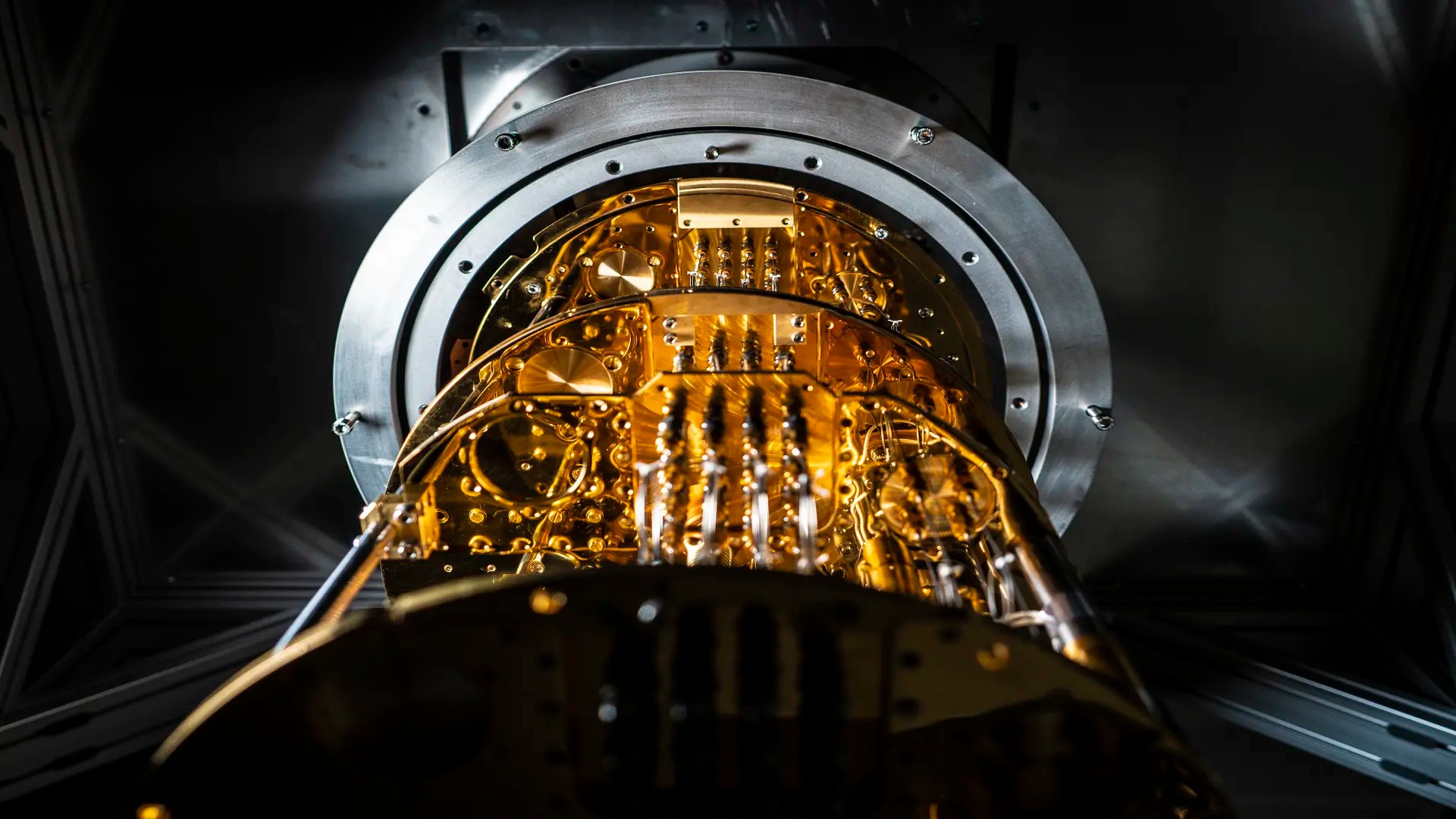
The Quantum Technology Laboratory (QTL) encompasses in general research within the field of quantum technology, focusing on quantum computing, quantum sensing, quantum transduction, quantum thermodynamics and quantum foundations.
The research spans amongst others quantum-processor design and technology, quantum computer software infrastructure, the physics of qubits and superconducting chips, the physics of nanomechanical resonators, exploration of the limits of quantum mechanics, thermodynamical concepts in the quantum regime and microwave-to-optics transduction on the quantum level.
QTL is largely guided by the efforts within the Wallenberg Centre for Quantum Technology (WACQT). A prominent goal of WACQT is to provide a functioning quantum computer with at least a hundred qubits. Such a computer has a far greater computing power than the best supercomputers of today and can be used, for example, to solve optimisation problems or heavy calculations of the properties of molecules. QTL develops such a quantum computer utilizing the experimental platform of superconducting quantum circuits.
QTL comprises five research groups, which are led by Jonas Bylander, Per Delsing, Simone Gasparinetti, Raphaël van Laer, and Witlef Wieczorek.
News from Quantum Technology
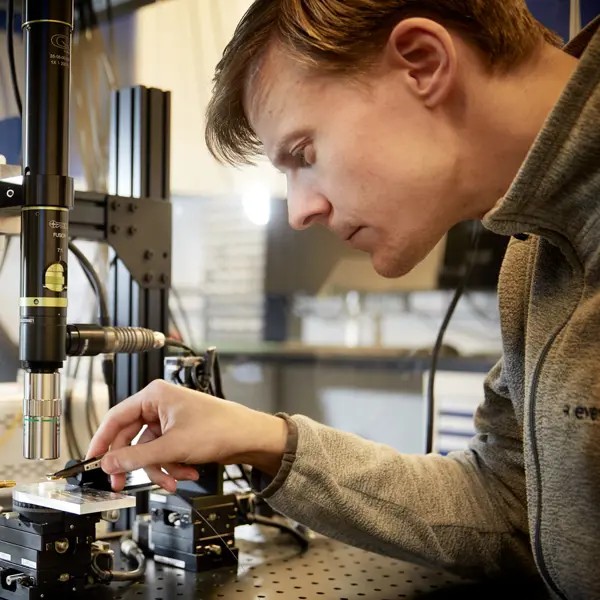
Towards interconnecting quantum computers using light and sound on a chip
Interconnecting remote quantum computers may accelerate the development of quantum technologies. But the road there is paved with several challenges. Now a research team at Chalmers University of Technology has made progress towards solving a central problem in the area - and thus taken a step closer to the possibility of interconnecting quantum computers using light.

One step closer to a European quantum computing community
At the end of June, nine European parties, including Chalmers, signed a hosting agreement for the acquisition and operation of a EuroHPC quantum computer within the framework of the LUMI-Q consortium. The collaboration is expected to link WACQT and other Nordic ecosystems for quantum computing users to a broad EU community and accelerate research and development in quantum technology in the coming years.
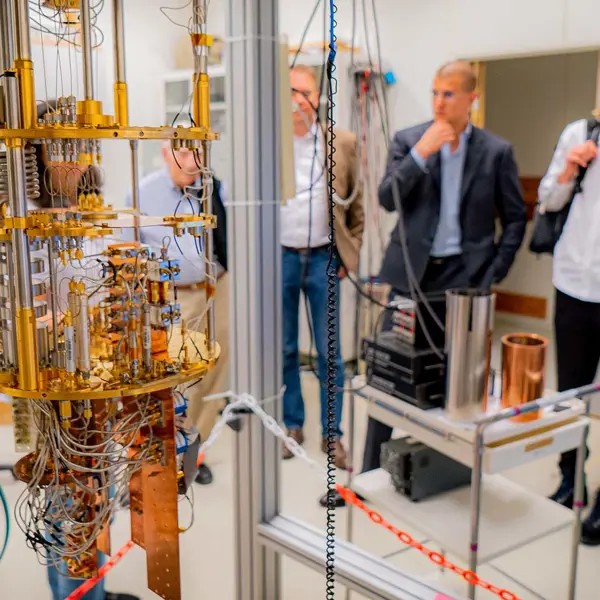
Great interest in Chalmers’ quantum computer
In step with the progress of quantum technology, the outside world’s interest in Chalmers' quantum computer is boosting – as is the number of study visits at WACQT. This spring the center has welcomed a number of curious students, companies and decision-makers from Sweden and abroad - all of whom want to know more about Chalmers’ quantum computer.

"Significant ramp-up phase but now we’re in a steady state"
Why do we need a Swedish quantum agenda? How do you best deal with the current quantum hype? And how is the construction of the quantum computer at WACQT coming along? These were a few of the topics that were up for discussion as the PhD students, researchers, partners, advisors, and board members of WACQT met up to review the center's activities during their annual May meeting.
Head of laboratory
Senior researchers

- Professor, Quantum Technology, Microtechnology and Nanoscience

- Full Professor, Quantum Technology, Microtechnology and Nanoscience

- Assistant Professor, Quantum Technology, Microtechnology and Nanoscience

- Head of Unit, Quantum Technology, Microtechnology and Nanoscience

- Associate Professor*, Quantum Technology, Microtechnology and Nanoscience
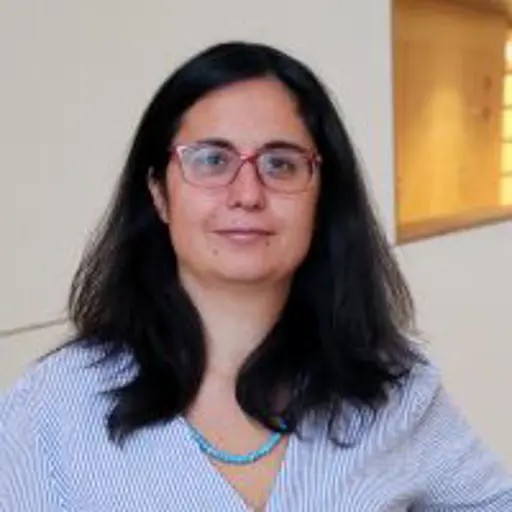
- Senior Researcher, Quantum Technology, Microtechnology and Nanoscience
Publications in Chalmers Research
We continually document our research in various types of publications, which are registered in Chalmers Research. Follow this link to see recent publication lists
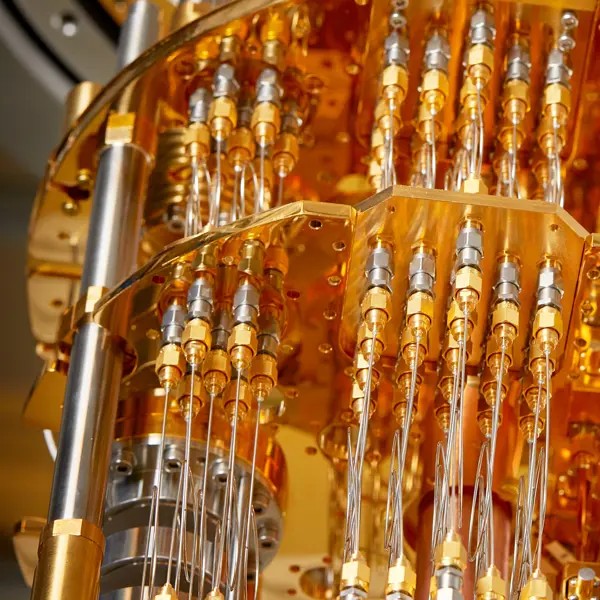
WACQT
The world is on the verge of a quantum technology revolution, with extremely powerful computers, intercept-proof communications and hyper-sensitive measuring instruments in sight. Wallenberg Centre for Quantum Technology is a 12 year SEK 1 billion research effort that aims to take Sweden to the forefront of this very rapidly expanding area of technology. Through an extensive research programme, we aim at developing and securing Swedish expertise within the main areas of quantum technology: quantum computing and simulation, quantum communications and quantum sensing. Our main project is to develop a quantum computer that can solve problems far beyond the reach of the best conventional supercomputers.
